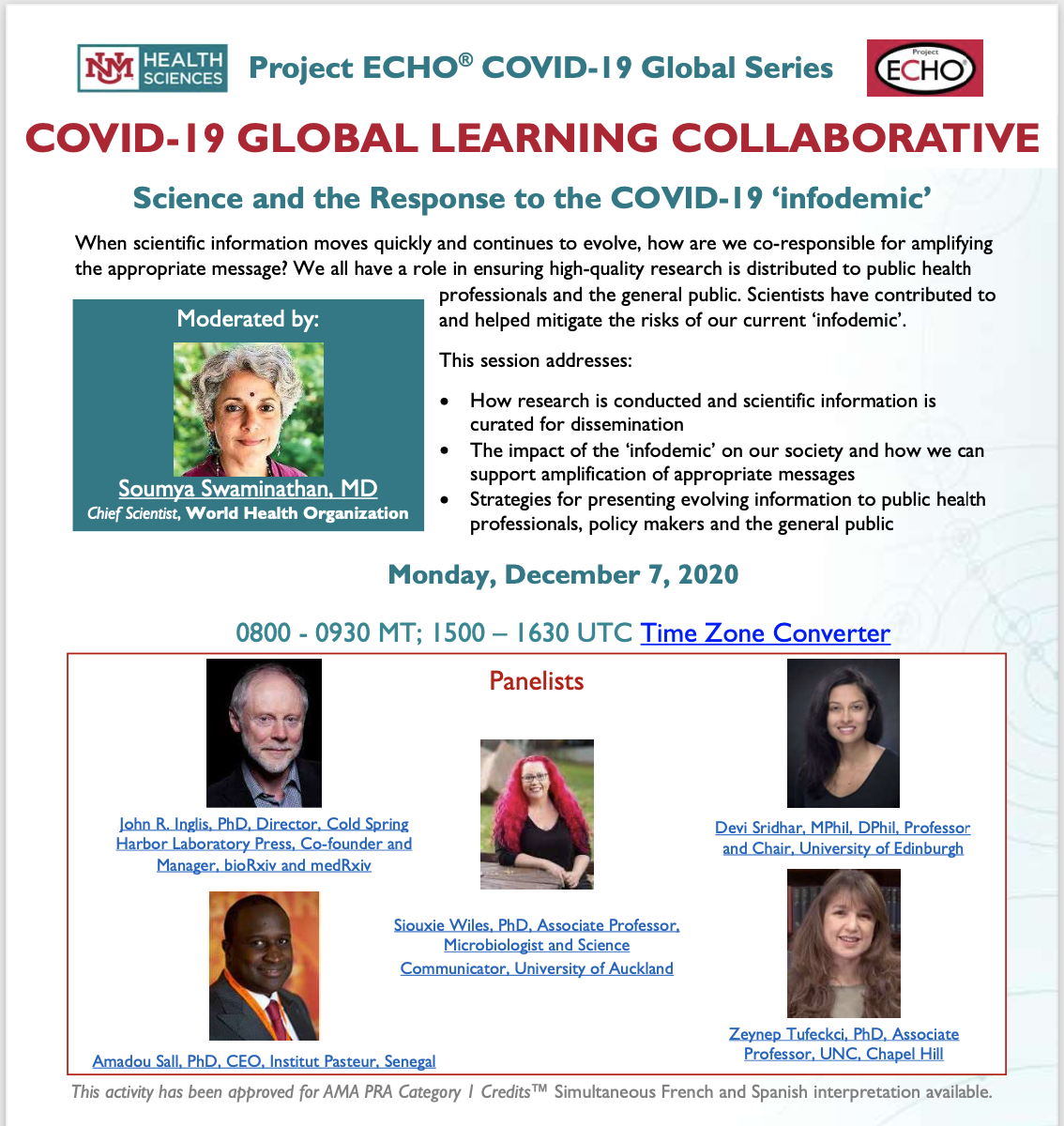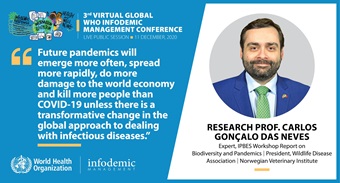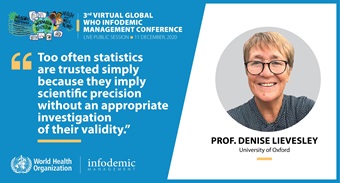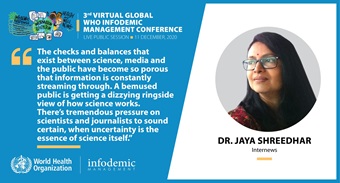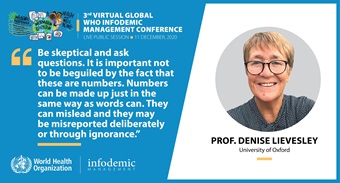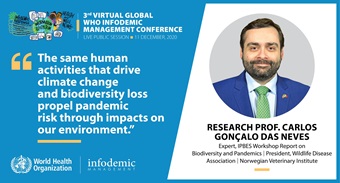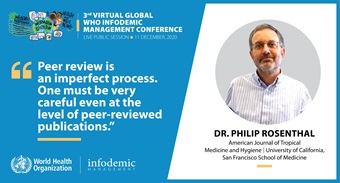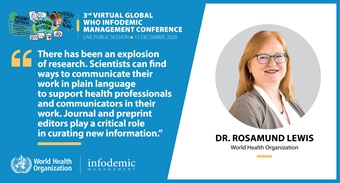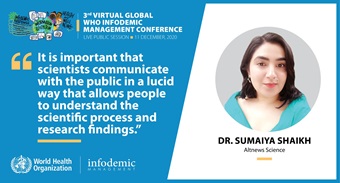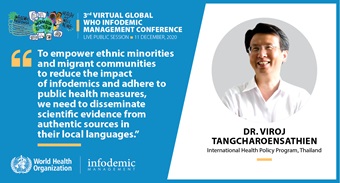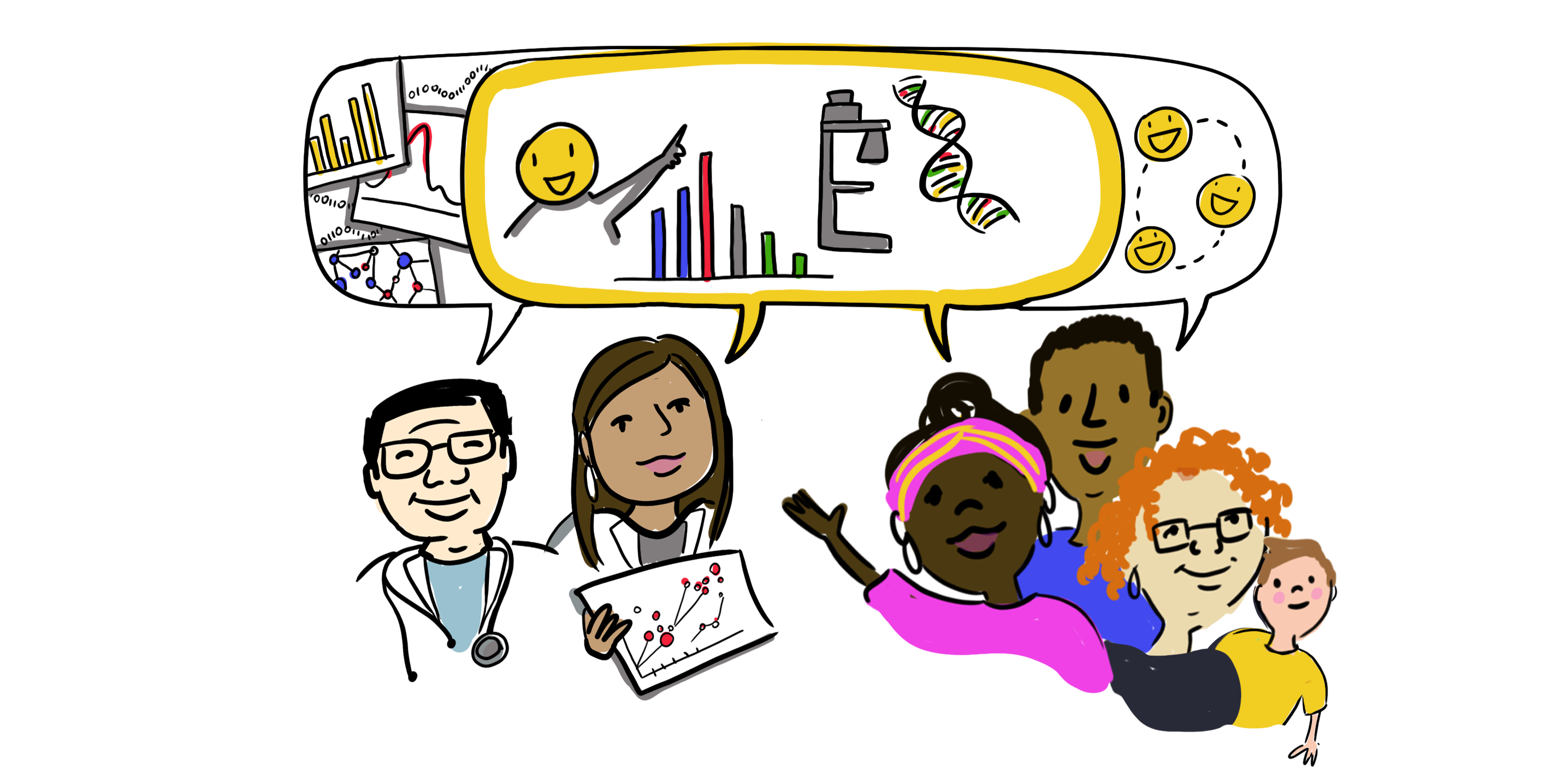
Science and research track
The global health community has faced a searing backlash in the wake of COVID-19 as the value of science and biotechnology has come into question. This has underscored a gap in science literacy among the general public and the need to convincingly and better communicate important findings. In this track, scientists and science communicators will explore how to pursue scientific endeavours – which evolve in real time – and communicate about them in such a way to generate trust and inspire people to understand and effectively manage their own risk during the pandemic. They will take a critical look at best practices for carrying out and showcasing high-quality science and presenting findings. Upon conclusion of the conference, they will report recommendations and commit to advancing science and how it is curated and reported in a way that promotes trust in the scientific process to achieve the best possible health outcomes.
Track objective
Two panel discussions will be held, the first of which, is to focus on the role scientists play in presenting research findings and how that can inadvertently contribute to the infodemic and country experience of how the scientific community can contribute to the managing of the infodemic. The second, will aim to discuss and summarize challenges and solutions to enhance the quality of research published, how it is curated, and how it can be presented to the general public to improve public understanding of research and how it applies to their lives. Panellists will engage scientists, journal editors, prominent public health advocates, and others across society to address the challenge of communicating high-quality science in a way that people can understand and what it means for how to respond to the COVID-19 pandemic.
Track participants
- Alt News Science
- American Journal of Tropical Medicine and Hygiene
- Cold Spring Harbor Laboratory Press, medRxiv
- Google News Initiative
- Institut Pasteur, Dakar, Sénégal
- Internews
- Linköping University Hospital, Sweden
- Misinformation in Medicine Summit, Data Leads
- University of Auckland, New Zealand
- University of Edinburgh, Scotland, Global Health Governance Programme
- University of New Mexico School of Medicine, USA, Project ECHO
- University of North Carolina, Chapel Hill, USA
- WHO, Regional Office for the Eastern Mediterranean, Cairo, Egypt
- WHO, Office of the Chief Scientist, Geneva, Switzerland
Outputs
Participants will commit to presenting information arising from scientific endeavours for a broader public, and make recommendations to contribute to infodemic management going forward. Participants will also produce a conference report of challenges and solutions identified and a toolkit for a whole-of-society response to infodemics, to be shared and used by science and public health community stakeholders.
Available sessions
29 October 2020 – Communication During Health Crises - Translating Sciences to Policy and Manage the Infodemic: The science track kicked off with a panel hosted by PMAC 2021, where we addressed three questions that focus on communicating during health crises and how to translate science to manage infodemics.
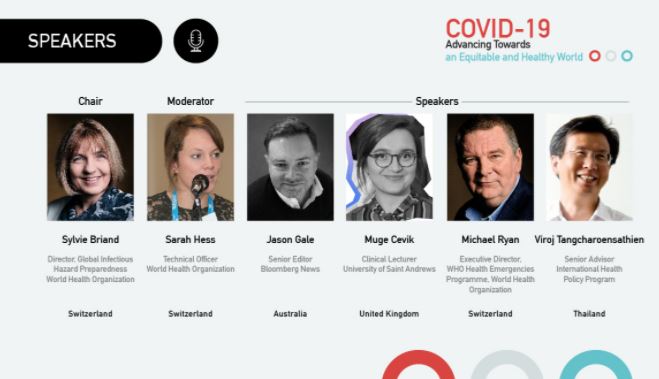
20 November 2020 – Science and its role in Responding to the Infodemic: As part of the dialogues leading up to the 11 December public event, the Misinformation in Medicine Summit hosted one of the science track sessions where journalists, medical professionals and policy experts deconstructed the COVID-19 infodemic and solutions to tackle medical misinformation.
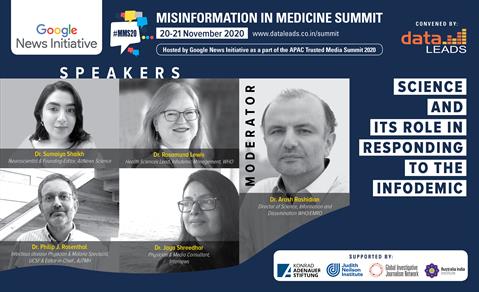
7 December 2020 – Science and the Response to the COVID-19 ‘infodemic’
Project ECHO® COVID-19 Global Series: COVID-19 global learning collaborative
When scientific information moves quickly and continues to evolve, how are we co-responsible for amplifying the appropriate message? We all have a role in ensuring high-quality research is distributed to public health professionals and the general public. Scientists have contributed to and helped mitigate the risks of our current ‘infodemic’.
This session addresses:
- How research is completed and scientific information is curated for dissemination
- The impact of the ‘infodemic’ on our society and how we can support amplification of appropriate messages
- Strategies for presenting evolving information to public health professionals, policy makers and the general public
The session is available in 3 languages here.
